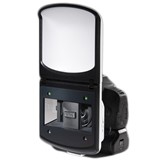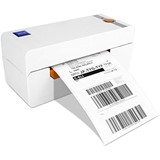Bebawy knows cancer intimately – for the past 18 years she has been researching multi-drug resistance in cancer. Funded by the Cancer Council NSW and National Health and Medical Research Council, her research is re-positioning the fight against cancer.
Instead of looking at curing patients through medication alone, Bebawy and her UTS team of seven PhD students and two postdocs are unlocking the code that prevents cancerous cells from passing on their dangerous resistance 'knowledge' to other cells.
Bebawy and her collaborator – Sydney University Medical School's Professor Georges Grau (Chair of Vascular Immunology) – have discovered tumours spontaneously shed tiny sub-micron elements (vesicles), called microparticles, which carry resistance proteins with them as part of their cargo.
"These vesicles act as a vector carrying these proteins and then they deposit the proteins onto a drug responsive cell, and in a matter of hours, that cell becomes absolutely multi-drug resistant and unresponsive to treatment," says Bebawy.
The vesicles also carry genetic material which they transfer to other cells, re-configuring their genetic landscape and recruiting them into the army of drug-resistant cells.
"The original cell completely changes to look like the resistant one, and we've confirmed this by doing really crazy experiments where we've taken vesicles from breast and put them on leukaemia cells, vesicles from leukaemia put them on breast, and we find a complete re-templating of the transcriptional landscape. This has really serious implications in conferring harmful traits within a cancer cell population."
Cancer is one of the leading causes of death in Australia. At current rates, it is expected one in two Australians will be diagnosed with cancer by the age of 85. Cancerous cells act like ants: when one route is blocked, they find an alternative, and Bebawy says, "multi-drug resistance is a huge problem for cancer patients because tumours can evade chemotherapy and it affects the success of the patient's treatment.
"There's a lot of research into drug development and there are thousands of molecules out there with anti-cancer properties, but really when it comes down to it, these molecules will work for a short period of time and then the patient relapses. It's for that reason, amongst others, we cannot kill cancer."
Bebawy says we need to find a new angle of approach, and that's what her research is delivering. "You have to be one step ahead of cancer, but it's difficult. I'm forever grateful to the Cancer Council for seeing the importance of this type of research. I approached them with a very crazy idea that cancers shed vesicles and the vesicles act as vectors, and initially we struggled to get that work published, but now it's just opened up a whole new area of research."
"This is an essential area because there's no point making drugs if the cancer is just going to change and cleverly adapt. We need to better understand drug delivery pathways and that's what I'm committed to.
"As scientists, if we can at least contribute a little piece of knowledge that could then be built upon in future years, I'd be very happy."











-160x160-state_article-rel-cat.png)











